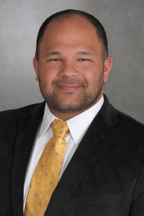
August 5, 2013 - The department’s Epidemiology Research group received a three-year grant from the World Trade Center Health Program, which is administered by the National Institute of Occupational Safety and Health, to conduct a randomized control trial to determine the efficacy of a mind-body treatment to simultaneously reduce symptoms of PTSD and respiratory illness in World Trade Center responders. Adam Gonzalez, PhD is the Principal Investigator.
Twelve years after the 9/11 attack on the World Trade Center, about a third of the responders continue to experience significant health and mental health problems despite receiving on-going treatment from the World Trade Center Health Program. About 20% of them have both physical and psychiatric problems. The combination of respiratory illness and PTSD is one of the most common co-morbid conditions.
The Relaxation Response Resiliency Program, developed at the Benson-Henry Institute for Mind Body Medicine at Massachusetts General Hospital, had been shown to simultaneously reduce psychological and physical health symptoms by eliciting the relaxation response. The study by Dr. Gonzalez and his colleagues will be the first randomized control trial to evaluate the effectiveness of this treatment for a combination of co-occurring symptoms of PTSD and respiratory illness.
Evelyn Bromet, PhD and Benjamin Luft, MD are Co-Principal Investigators. Roman Kotov, PhD (Department of Psychiatry) and Glenda Truijillo, PhD (Department of Pathology) will collaborate on the project. The research team will be assisted by consultants at the Benson-Henry Institute for Mind Body Medicine and Camilo Ruggero, PhD (Department of Psychology, University of North Texas). If the trial is successful, Dr. Gonzalez anticipates that the treatment can be implemented at all of the World Trade Center Health Program sites and contribute to the scientific understanding of the protocol’s effectiveness for the treatment of co-morbid respiratory illness and PTSD.